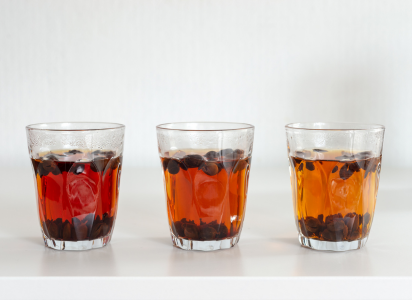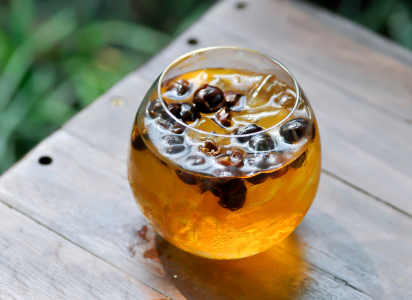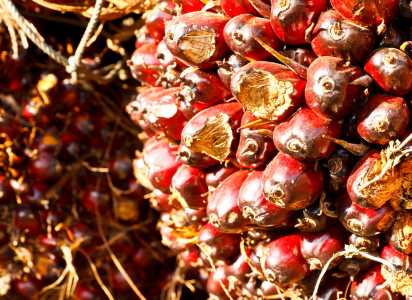Have you ever heard of cascara? If you’re a coffee lover, you might be interested in this delicious and flavorful tea, made from the dried skins of coffee cherries. Cascara has been gaining popularity in recent years, and for good reason. Not only does it taste great but it’s also full of health benefits. In this blog post, we’ll dive deep into the world of cascara, exploring its history, taste, and preparations.
The United States has recently discovered the cascara drink, which has been in existence for a long time. Cascara is mainly a dried fruit; it is the small cherry/berry of the coffee plant/tree that holds the coffee bean until it’s mature enough to be harvested.
The berries come in various colors, including red and yellow. Cascara contains caffeine, just like coffee. Initially, cascara was used as fertilizer when coffee was harvested, and the cherries were separated from the coffee beans.
What Exactly Is Cascara? I Still Don’t Get It…
Cascara, which means “husk” or “skin” in Spanish which refers to the dried skins of coffee cherries. Typically, these skins are discarded during the coffee bean roasting process. However, in recent years, coffee farmers have realized the value of these skins and started to dry and brew them as a tea. When brewed, cascara tea has a slightly sweet and fruity taste, reminiscent of dried fruit or honey.
The high demand for this drink makes it a potential point for market growth in the coffee industry. The raw product of cascara is not readily available for sale.
They are mostly packaged as drinks, which individuals can grab on their way to work or home. Being a product of the coffee plant, cascara has health benefits like coffee, so the demand for it increases even more.
Benefits of Cascara
So what are some of the health benefits of cascara? Since cascara is made from the coffee cherry skins, it contains many of the same compounds as coffee, including caffeine and antioxidants. However, it also has high levels of vitamins like vitamin C and minerals like potassium. Not only that, but some studies have shown that drinking cascara tea could have health benefits like reducing inflammation and improving digestion.
Where Does It Come From?
But where does cascara come from, and how did it become popular? Cascara has been used for centuries in coffee-growing regions like Ethiopia and Yemen, where it’s often brewed as a traditional tea. However, it wasn’t until recently that cascara began to gain popularity in the western world. In part, this is due to the rise of specialty coffee shops, which have started to offer cascara on their menus.
Additionally, as people become more interested in sustainability and reducing waste, cascara has gained attention as an upcycling solution for coffee cherry skins that would otherwise be discarded.
Making Cascara Tea

Once the coffee beans or seeds have been removed, the coffee cherry is kept together to produce cascara. The extra husks are washed away, leaving clean cascara.
It is after washing that the fruits are then dried before being packaged for transportation to the various markets. The brewed version of cascara is used to make coffee cherry tea in the same way that normal tea is made.
One of the great things about cascara is its versatility. You can brew it hot like a traditional tea, or even make a cold brew. To make a hot brew, simply steep the dried skins in hot water for a few minutes, strain, and enjoy. For a cold brew, you’ll want to steep the skins in cold water overnight, then strain and serve over ice. You can also experiment with adding flavors, like cinnamon or ginger, for a unique twist on this already delicious tea.
Is Cascara Tea Or Coffee?

The concept of brewing the coffee cherry fruit like tea might bring contradiction about whether cascara is coffee or tea. Cascara is in between coffee and tea, and although it originates from a coffee plant, it does not have the taste of coffee.
It has the same taste as herbal tea, which has a sweet and fruity taste. The taste varies from different fruits such as cherry, mango, and hibiscus.
Cascara can also have a rich taste, like that of maple and brown sugar. The taste of the coffee cherry tea varies, depending on the region which the plant originates from, the type of plant, the period of picking, and how it is brewed.
Does Cascara Have A Lot Of Caffeine?
Yes, cascara does have a good amount of caffeine. A cup of cascara tea contains about 40-50 mg of caffeine, compared to an average cup of coffee which contains 95-200 mg.
Because it is made from coffee cherry skins, it contains many of the same compounds as coffee, including caffeine.
However, because it is typically brewed for a shorter amount of time than coffee (usually about 5 minutes), the resulting cup will contain less caffeine than an equivalent-sized cup of coffee.
Is It Good For You?

Yes, cascara tea can be beneficial for your health! It contains a good amount of antioxidants and vitamins like vitamin C. Additionally, some studies have shown that drinking cascara tea could have health benefits like reducing inflammation and improving digestion.
However, drinking it daily is not recommended, as too much caffeine can have adverse health effects.
Side effects can include increased heart rate, headaches, insomnia and restlessness but can be avoided by consuming it in moderation.
Is Cascara Banned in the UK?
No, cascara is not banned in the UK. In late 2021, the European Food Safety Authority (EFSA) has approved cascara as a food additive and it is now widely available for purchase in supermarkets and health food stores across the UK. As long as you keep your consumption moderate, there are no restrictions on its sale or use in the United Kingdom.
In the US, cascara is an unregulated ingredient, meaning that it can be freely sold over the counter without any restrictions which is why you can order a cascara latte at Starbucks!
Why Was Cascara Banned?
Cascara was not officially banned anywhere. However, in some countries like the EU, it was classed as a new novel food ingredient and was not allowed to be sold until it had been approved by the European Food Safety Authority (EFSA). This approval process took many years, but in 2021, EFSA approved cascara as safe for use.
In other countries, like the US and UK, it was never officially banned but rather was unregulated and not widely available until recently.
Now that its health benefits have been recognized, cascara is becoming more popular and widely available around the world.
So, if you’re looking for a new source of antioxidants, vitamins, and minerals with a lower caffeine content than coffee, give cascara a try.
Blending Cascara With Coffee
The composition of caffeine in cascara makes it appropriate for a daily caffeine fix. Individuals who must have coffee daily can combine both cascara and coffee.
If you’re a coffee lover looking for a new and delicious way to enjoy your favorite drink, give cascara a try. Not only is it full of flavor, but it’s also packed with health benefits and has an interesting backstory. Whether you’re sipping a hot cup of cascara tea or trying it in a cold brew, this coffee cherry tea is sure to become a new favorite. So why wait? Grab a bag of cascara and start exploring the tasty world of coffee cherry tea today.